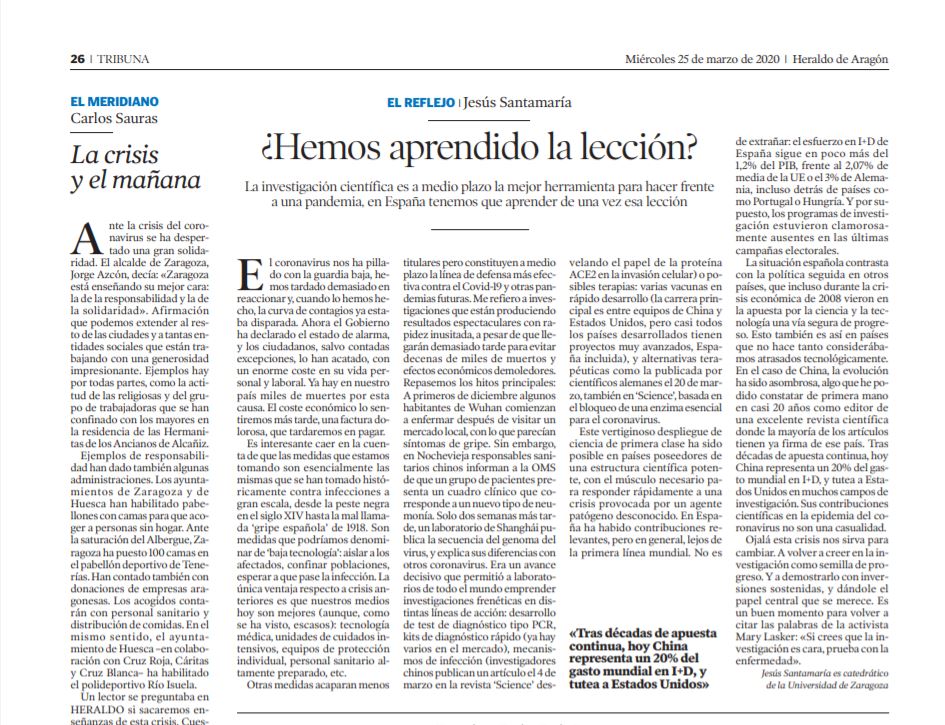
Heraldo de Aragón publishes today an opinion article written by Jesús Santamaría, Scientific Director of Nanbiosis U9 Synthesis of Nanoparticles Unit about the COVID19 Pandemic in the relation with the investment in R&D.
The proffesor at the University of Zaragoza makes a quick review on the
the main milestones reached by researchers to fight the COVID 19: “In early December some Wuhan residents start to get sick after visiting a local market, with what looked like flu symptoms. Nevertheless, Chinese health officials report to World Health Organization on New Year’s Eve that a group of patients presented a new type of pneumonia. Just two weeks later, a Shanghai lab published the genome sequence of the virus, and explained its differences from other coronaviruses. It was an advance decisive that allowed laboratories around the world to undertake frenetic investigations in different lines of action: development of PCR diagnostic tests, rapid diagnostic kits (there are already various on the market), mechanisms of infection (researchers Chinese publish an article on March 4 in the journal ‘Science’ revealing the role of the ACE2 protein in cell invasion) or possible therapies: several rapidly developing vaccines (the main race is between teams from China and the United States, but almost all developed countries have very advanced projects, including Spain), and therapeutic alternatives such as the one published by German scientists on March 20, also Science Journal, based on the blockade of an essential enzyme for the coronavirus” In summary, “research is producing spectacular results with unusual speed“, sais Santamaría and explains: – “This dizzying display of world-class science has been possible in countries with a powerful scientific structure, with the muscle to respond quickly to a crisis caused by an unknown pathogen. In Spain there have been relevant contributions, but in general, far from the world front line. In fact: Spain’s R&D effort continues at just over 1.2% of GDP, compared to 2.07% for the EU average or 3% for Germany, even behind countries such as Portugal or Hungary. In others countries, -continous the proffessor- even during the 2008 economic crisis there was commitment to science and technology as a way of progress. This is also the case in countries that not so long ago we considered technologically backward. In the case of China, the evolution has been amazing”, -confirms the rearcher according his experience as Editor of an excellent scientific journal for more than 20 years where most of the articles had a signature from that country. – “Hopefully this crisis will help us to change. To believe in research again as a seed of progress. And to demonstrate it with sustained investments, and giving it the central role it deserves.”
The proffessor ends his article quoting the words of the activist Mary Lasker: “If you think research is expensive, try the disease.”








